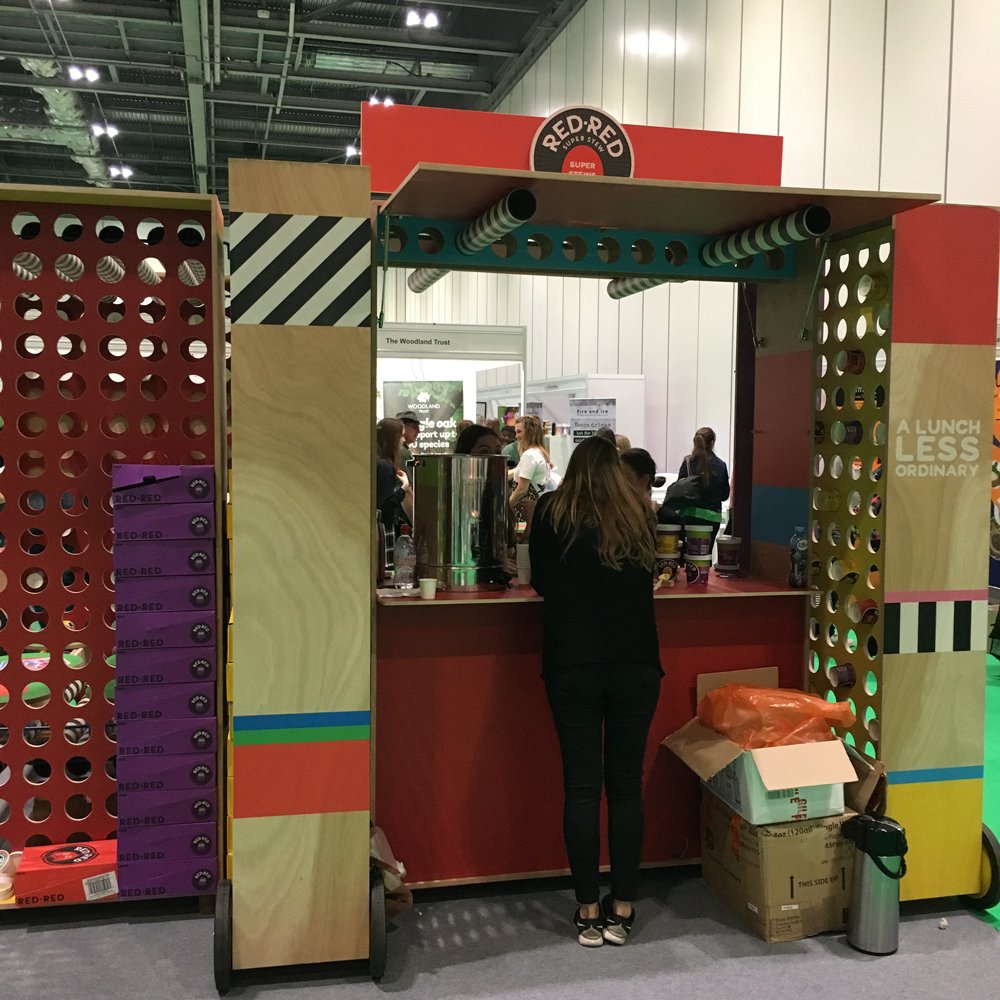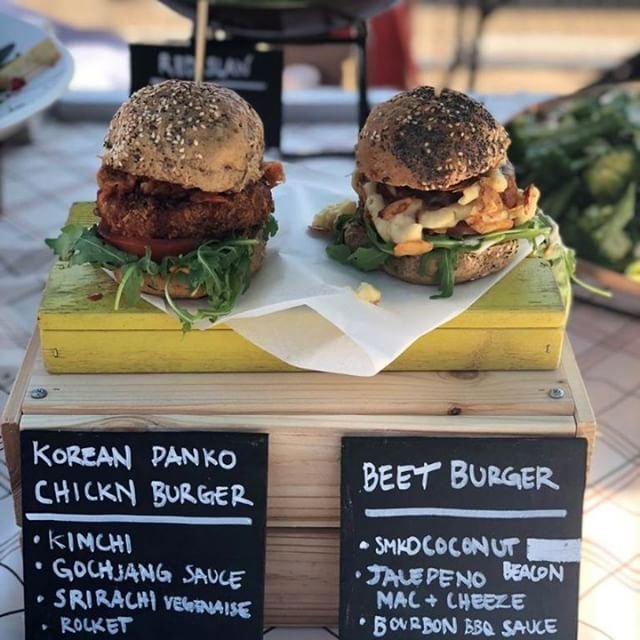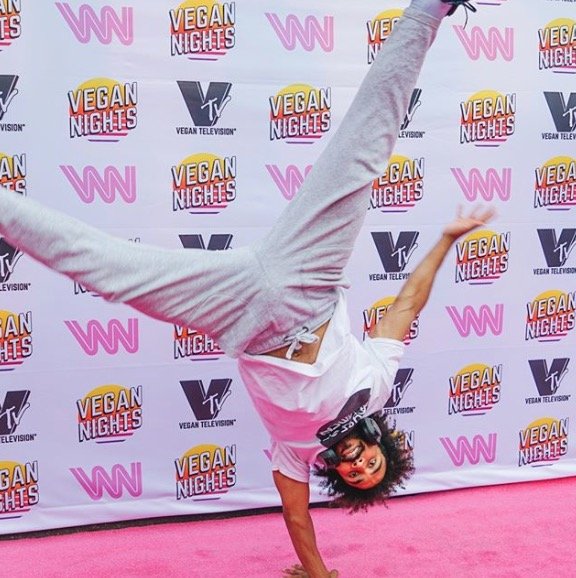Plant based futures
We travelled down to Plant Based Live, a vegan food show, held at the Excel Centre in London. We like to get along to trade exhibitions and shows every once in a while, they’re always great places to get a view on a sector and develop insights, with new startups often present alongside more established brands. But it also gives you a sense of the pulse of a sector, what trends are emerging, who the customers are and what they’re looking for. It’s a great space to walk around and catch up with brand owners, talk about the challenges the market is facing and product or service developments in the sector.
A few weeks ago we travelled down to Plant Based Live, a vegan food show, held at the Excel Centre in London. We like to get along to trade exhibitions and shows every once in a while, they’re always great places to get a view on a sector and develop insights, with new startups often present alongside more established brands. But it also gives you a sense of the pulse of a sector, what trends are emerging, who the customers are and what they’re looking for. It’s a great space to walk around and catch up with brand owners, talk about the challenges the market is facing and product or service developments in the sector.
We thought we’d share a few thoughts that we took away from the trip down and what we saw as key themes.
Red Red
Red Red had what could fairly be described as the most intriguing or extravagant stall at the show. A relatively new player in the market, Red Red Super Stews are a Unilever funded startup that is vibrantly and vigorously entering the market with a big push. In their words “A Lunch Less Ordinary – Mixing up the energy of Africa with vegan vibes and fast-paced London lifestyles, Red Red is an all-singing all-dancing mouthwatering meal pot that cooks up the kind of kicks you wouldn’t have thought possible in just seven minutes.”. With their brightly strewn Instagram channel and event activity, it’s clear that Unilever see a large market in the Gluten Free and Vegan sector and want to ensure they have their share. Whilst it’s not unexpected to see large global brands making their footprint in a growing market, it’s both a reassuring sign that the sector is growing and profitable, but equally that it’s no longer just the domain of small to medium sized businesses.
mages courtesy of VeganNightsLdn
Social is where it’s at, still…
Along with a the vibrant stores and exciting new product appearances were the smiling, healthy looking faces of the young, socially motivated ambassadors and advocates of the rising vegan community. Bloggers, Instagramers, YouTubers, Snapchatters were in full attendance. From the speakers on the various stages, to interviews and live streaming that was going on during the event, this is a vibrant and in-touch community that is social by its nature. Whilst the vegan market might have been the domain of a different consumer profile a decade ago, all of that has changed now and the new faces of the vegan world are very much talking about it. We all need to embrace the energy and enthusiasm of this audience and ensure we get the right partners and ambassadors that correctly match our target audience and reflect our brand vision and values. Take some time to review some of the Instagram accounts of the new vegan generation, it’s bright, colourful, sporty and young.
Product packaging and the plastic problem
It was talked about several times over the weekend, from casual conversations, to Paul Brown talking about BOL‘s attempts to reduce packaging and plastics from their product range. It’s a big conversation that’s going to take some serious action from the main supermarket buyers in the market, but it’s a conversation that’s not going to be going away any time soon. In a recent survey by ThoughtWorks, 57% of respondents put reducing packaging and plastic use ahead of price – https://www.thoughtworks.com/news/groceryretail2030 . If you’re not addressing this concern already, you’d be advised at least to start talking about what you’re doing to do to address this and other environmental issues that many brands face and share this as an insight to your customers.
Vegan Products vs Vegan Producer
The event was predominantly attended by vegan producers as you’d expect, however one of the busiest stalls at the event was that of HECK Foods. Despite the fact that HECK sell many products that contain meat, let alone are not vegan, the HECK stall did a roaring trade by giving away products all weekend in return for a social “like”. This might be down to lack of consumer knowledge about their other products or it could be down to the simple fact that no one turns down a freebie – but HECK weren’t hiding the fact that they also produce meat based products, although obviously they didn’t have any on display that day. But one thing was clear, a producer could have success in the vegan market without necessarily being a vegan only brand. The sector seems no longer the domain of pure vegans. Flexitarian is a term that was coined not so longer ago in the vegetarian food sector, those looking to actively reduce their meat consumption, but still eat the odd meal containing meat. Who are the consumers in the vegan food sector, are we seeing a similar reflection of the flexitarians that are now common in the vegetarian sector and what are their buying concerns?
Protein is king
We all know it already, but the conversation about the importance of protein in our diets continues to dominate consumer questions about products. The outcome of this is that consumers are becoming for more educated in the types of protein sources available and the best methods of hitting their protein daily goals. From growing families to those looking to carry a bit more muscle weight, protein is going to continue to be of interest to those taking care in what they eat; who are growing in number by the day. Being aware of the protein values in products and how you might better highlight those on your packaging or improve the quality of the protein in your products, is going to continue to grow in importance.
Plant Based Live
It was the first run of Plant Based Live and overall it felt like the event was in the right spirit, but perhaps felt quieter than might have been hoped for such a vibrant, energising sector. Whilst there were numerous live talks, cooking sessions etc. it felt like it missed something more dynamic and perhaps engaging in terms of format, aesthetic and use of the space. We don’t have any fast suggestions on how to achieve this, but it may be related to reflecting the wider community space and lifestyle choices that many who are opting to be vegan are also adopting. We’d been to the Balance Festival earlier in the year and this did feel like it fulfilled the “festival” title it had given itself. Tying into more of the lifestyle aspects of the new generation of health seeking, food conscious, active individuals seeking a “better self” through choices such as a vegan lifestyle. Whilst it would be daft for Plant Based Live to replicate the Balance Festival, they do need to find create their own space, it felt like some of the broader sense of the vegan sector could have somehow been further integrated into Plant Based Live. We saw the team at Plant Based Live actively engaging with both exhibitors and consumers over the weekend, so hoping that next year’s exhibition will build on this year’s good experience to make it even better.
If you need help further insights into your customers or developing market trends, get in touch to see how we might be able to help you and your organisations get the insight it needs.






